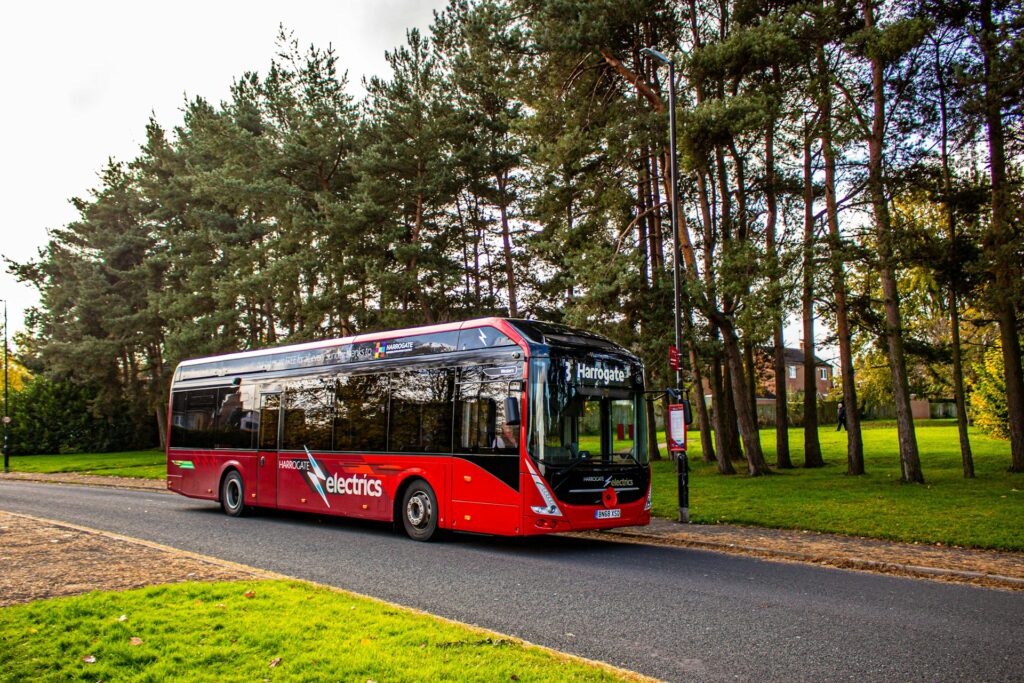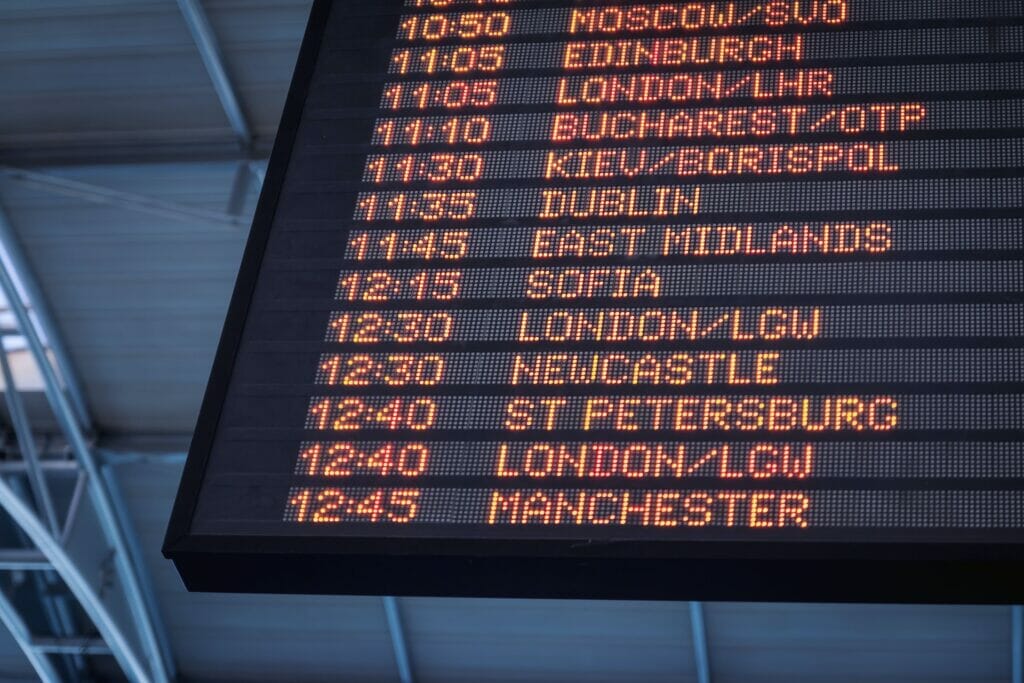Portugal has a well-structured transport system that connects cities, towns, and rural areas. Public and private options allow travelers to move easily between destinations. Transportation in Portugal includes buses, trains, metros, taxis, and rental cars. Tourists and residents can choose from different services based on their needs and budget.
Overview of Transportation in Portugal
Public transport is affordable and widely used in major cities. Buses and trams cover urban areas, while trains connect distant regions. Portugal public transport makes commuting easy with frequent schedules and convenient stops. Travelers can explore cities and coastal towns without needing a personal vehicle.
Private transport options provide flexibility for those who prefer independence. Car rentals are popular for long road trips, and taxis are available in urban areas. Portuguese transportation services also include ride-sharing apps for hassle-free travel. Visitors can explore Portugal at their own pace with different transport choices.
International and domestic travelers benefit from Portugal’s modern airports. Lisbon, Porto, and Faro airports serve millions of passengers each year. Lisbon Airport is the main gateway for international flights. Air travel connects Portugal to the world and makes regional trips faster.

Public Transport: Buses and Trams
Buses and trams provide reliable and affordable transportation in Portugal. Major cities like Lisbon and Porto have extensive networks that connect different neighborhoods. Portugal public transport operates with modern vehicles that run on fixed routes. Locals and tourists rely on buses and trams for daily travel.
Lisbon’s iconic yellow trams offer a scenic way to explore the city. Tram 28 is a favorite among visitors as it passes through historic districts. Porto also has trams that run along the Douro River and through the city center. Trams provide a nostalgic and convenient way to move around.
Bus services connect towns and rural areas to major cities. Companies like Rede Expressos operate long-distance routes across the country. Transportation in Portugal includes city buses managed by local operators. Travelers can purchase tickets at stations or use contactless payment options.
Tourists can buy daily or weekly transport passes for unlimited travel. The Viva Viagem card allows easy access to Lisbon’s public transport network. Carris operates the city’s bus and tram services. Using a transport pass saves money for those who plan to travel frequently.
Train Travel: Connecting Major Cities and Regions
Trains offer a fast and scenic way to travel between Portuguese cities. The national railway company, CP – Comboios de Portugal, operates regional and intercity services. High-speed trains connect Lisbon to Porto in under three hours. Transportation in Portugal is more comfortable with train travel.
Intercity trains serve passengers traveling long distances. Alfa Pendular trains provide faster service with modern amenities. Portugal public transport also includes suburban trains that link nearby towns. Trains are a great option for travelers who prefer a relaxed journey.
Train stations are located in central areas for easy access. Lisbon’s Santa Apolónia Station serves both national and international routes. Porto’s Campanhã Station connects to the north and other regions. Buying train tickets online or at kiosks is simple.
Passengers can book seats in advance for intercity and high-speed trains. CP offers discounts for early reservations and group travel. Portuguese transportation services provide comfortable travel with modern facilities. Tourists can enjoy scenic countryside views on their train journey.

Metro Systems in Portugal
Lisbon and Porto have metro networks that provide fast and convenient travel. The metro is one of the most reliable forms of transportation in Portugal. Metro stations are located near business districts, residential areas, and tourist attractions. Locals and visitors use metro services daily.
Lisbon’s metro has four color-coded lines that connect different parts of the city. Trains run frequently, reducing waiting times for passengers. Lisbon Metro is clean, safe, and easy to use. The metro system is ideal for those traveling long distances within the city.
Porto’s metro extends to the suburbs and surrounding towns. The light rail network connects the airport, city center, and residential areas. Metro do Porto operates six lines with frequent departures. Tourists find it convenient for visiting cultural and commercial districts.
Metro fares are affordable compared to taxis and car rentals. Passengers can buy single tickets or rechargeable transport cards. Portugal public transport makes travel easy with clear maps and announcements. Metro services reduce travel time and congestion in major cities.
Taxis and Ride-Sharing Services
Taxis are available in all major cities and towns across Portugal. Travelers can find taxis at airports, train stations, and busy streets. Transportation in Portugal includes metered taxis with fair pricing. Most drivers accept cash and card payments.
Ride-sharing services like Uber, Bolt, and Free Now operate in Portugal. These apps provide an alternative to traditional taxis. Portuguese transportation services allow users to book rides instantly. Ride-sharing offers upfront pricing and cashless transactions.
Taxi fares vary depending on the distance and time of day. Additional charges may apply for luggage or airport pickups. Portugal public transport provides fixed-rate services for some airport routes. Checking fare estimates before booking ensures fair pricing.
Tourists should confirm whether taxis accept card payments. Some drivers only accept cash, especially in small towns. Portuguese transportation services improve convenience with ride-sharing options. Visitors can avoid language barriers by booking through apps.

Renting a Car and Driving in Portugal
Renting a car is ideal for travelers exploring Portugal’s countryside and coastal areas. Rental companies offer a variety of vehicle options at competitive rates. Transportation in Portugal is more flexible with a personal vehicle. Road trips allow visitors to discover hidden gems.
Portugal has a well-maintained highway network with toll roads. Some highways require electronic toll payments instead of manual booths. Portugal public transport covers cities, but driving offers more independence. Rental agencies provide electronic toll devices for added convenience.
Drivers must carry an international driving permit if required by their home country. Speed limits and parking regulations vary across cities. Transportation in Portugal ensures safe travel with road signs in English and Portuguese. Following local driving laws prevents fines and penalties.
Car rentals are available at airports and city centers. Booking in advance secures better rates and vehicle choices. Transportation in Portugal allows road travelers to experience scenic coastal routes. Driving offers freedom to explore areas beyond public transport reach.
Air Travel and Domestic Flights
Portugal has three major international airports: Lisbon, Porto, and Faro. Domestic flights connect the mainland with the Azores and Madeira islands. Faro Airport is the main gateway to Algarve. Air travel provides fast transportation between regions.
Low-cost airlines offer budget-friendly domestic flights. Travelers can book affordable tickets to different Portuguese cities. Portuguese transportation services include flights operated by TAP Air Portugal and Ryanair. Booking early ensures lower fares.
Airport transfer services are available for easy access to the city. Taxis, buses, and metro lines connect airports to main areas. Portugal public transport links airports with major transportation hubs. Traveling by air saves time for long-distance routes.
Airports provide modern facilities for international travelers. Passengers can access lounges, restaurants, and duty-free shops. Transportation in Portugal ensures comfortable air travel with well-equipped terminals. Portugal’s air network makes domestic and international travel convenient.

Ferry and Boat Services
Portugal has ferry services that connect islands and coastal areas. Passengers can take ferries between mainland Portugal and the Azores. Portuguese transportation services include scenic boat trips on the Douro River. Water travel offers a unique way to explore the country.
Lisbon and Porto have boat services for river cruises. Tourists can enjoy sightseeing trips along the Tagus and Douro rivers. Douro River Cruises offer scenic tours with breathtaking views. Ferries provide alternative travel options in some coastal regions.
The Algarve has boat tours for visitors exploring the coastline. Speedboats, catamarans, and sailing trips are available for tourists. Portugal public transport includes ferries for island connections. Water transport is a relaxing way to experience Portugal’s natural beauty.
Looking to Relocate to Portugal?
Relocating to Portugal is an exciting opportunity, but navigating the residency process can be complex. Portugal Residency Advisors® specializes in guiding individuals and families through every step, whether you’re moving for investment, retirement, work, or remote living.
With expertise in visas like the Golden Visa, D7, D8 (Digital Nomad Visa), and D2, we provide tailored support to ensure a smooth transition. From application assistance to legal and tax advisory, we handle the details so you can focus on starting your new life in Portugal.
Our services go beyond paperwork—we help clients find the right property, open bank accounts, obtain NIF numbers, and integrate into Portugal’s lifestyle with ease. Whether you’re an investor seeking residency through real estate or a retiree looking for a peaceful new home, we simplify the process.
With Portugal’s excellent quality of life, safety, and welcoming atmosphere, now is the perfect time to make the move. Contact Portugal Residency Advisors today and start your journey with confidence!
Frequently Asked Questions About Transportation in Portugal
How reliable is public transportation in Portugal?
Portugal public transport is reliable and well-connected in major cities. Buses, trams, and metros operate frequently, making daily travel easy for locals and tourists.
Does Portugal have a metro system?
Yes, Lisbon and Porto have efficient metro networks. Portuguese transportation services include metro trains that connect key locations quickly, offering a convenient way to travel.
Can I use the same ticket for buses, trams, and metro?
Yes, in Lisbon and Porto, the Viva Viagem card allows access to Portugal public transport across buses, trams, and metro services for seamless travel.
Are taxis and ride-sharing services available in Portugal?
Taxis are available in cities and towns, and ride-sharing apps like Uber and Bolt offer alternative Portuguese transportation services with convenient booking options.
How do I travel between Lisbon and Porto?
High-speed trains operated by CP – Comboios de Portugal connect Lisbon and Porto in under three hours, making transportation in Portugal efficient for long-distance travel.
Are domestic flights available in Portugal?
Yes, domestic flights operate between Lisbon, Porto, Faro, and the islands. Portuguese transportation services include budget airlines for fast intercity travel.
Is renting a car a good option for traveling in Portugal?
Renting a car is ideal for exploring rural areas and coastal regions. Transportation in Portugal includes well-maintained highways for long-distance road trips.
Do ferries operate in Portugal?
Yes, ferries connect the mainland to the Azores and Madeira. Portugal public transport also includes scenic river cruises along the Douro and Tagus rivers.
How much do metro and bus tickets cost in Portugal?
Ticket prices vary by city, but Portuguese transportation services offer daily and monthly passes for affordable travel on public transport.
What is the best way to travel around Portugal?
The best option depends on your destination. Transportation in Portugal includes trains for long-distance travel, metros for city commuting, and car rentals for countryside exploration.




